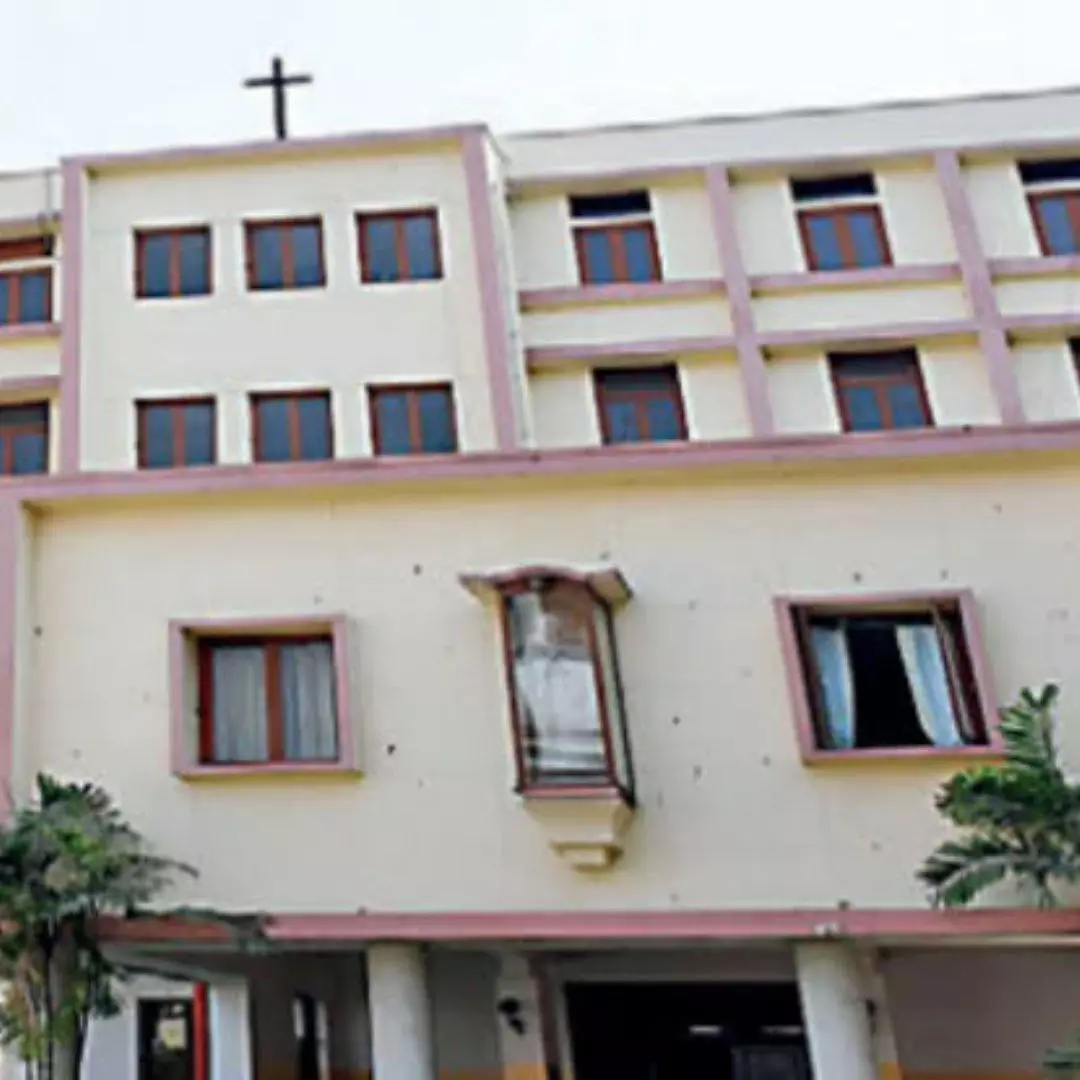
Image Credits: The Times Of India
India
Kolkata College Draws Flak After Denying Admission To Non-English Medium Students
 |
|In the note, the college, established in 1912, stated that all instructions, examinations and even library books at the institution are exclusively in English, with the exception of vernacular books.
Loreto College, a renowned institution located in the heart of Kolkata, has come under criticism for its decision to bar students from Hindi and Bengali medium schools from seeking admission, leading to the University of Calcutta requesting an explanation from the college's principal.
The college, affiliated with Calcutta University (CU), recently published its list of selected candidates for undergraduate courses for the year 2023, accompanied by a perplexing note that stirred controversy. In the note, the college, established in 1912, stated that all instructions, examinations and even library books at the institution are exclusively in English, with the exception of vernacular books.
Furthermore, the college declared that students from vernacular medium schools were not considered for admission, sparking accusations of perpetuating a "colonial hangover."
"The medium of instruction in Loreto College is ONLY English. Examinations will have to be answered ONLY in English. Our reputed Open Shelf Library has only English reference/text books and journals for all subjects other than vernacular Bengali and Hindi," the note read.
College Issues Apology
After facing backlash, the college has since revised the note, removing the discriminatory segment. Previously, the note stated, "From previous experience we strongly recommend that candidates hailing from vernacular medium schools opt to study in institutions where the medium of instruction is bilingual. Students whose medium of instruction in Class XlI was vernacular have not been considered for admission." The note also contained a spelling mistake, highlighting the irony of the notice.
The new version of the note no longer mentions the denial of admission to non-English medium students. Critics view this elitist and discriminatory rule as unprecedented, as it had not been in place during previous admission sessions, according to several alumni of the college.
Calcutta University's administration has reprimanded Sister Christine Coutinho, the principal of Loreto College, stressing that this rule does not align with the university's guidelines. Following the backlash, the college issued an apology.
"The college apologises for inadvertently hurting the sentiments of the students. It was not the intention to discriminate against any student from any background. However, there was a reason for giving preferences to students from English medium schools. Teachers had observed that students from non-English medium schools faced difficulties in following lectures. Therefore, this practical consideration was made to ensure that students do not feel uncomfortable in the academic environment," the college explained as per a report in Money Control
In an unusual practice among Calcutta University's affiliated colleges, Loreto College has released separate lists of candidates based on their respective education boards, namely ISC, CBSE, and the state board. Although each college has autonomy in its selection process, this board-wise segregation is uncommon in the city.
What Does NEP 2020 Say?
The National Education Policy 2020 emphasizes the use of the mother tongue or local language as the medium of instruction until Class 5, with a recommendation for its continuation until Class 8 and beyond.
This development raises questions about the three-language formula. Will students now be required to study in their mother tongue? Here's what we currently know about the new policy.
The three-language formula, as outlined in the new National Education Policy (NEP), suggests that all students should learn three languages during their schooling. At least two of these languages should be native to India. For instance, a student in Mumbai learning Marathi and English would need to choose another Indian language to study.
However, the new policy mandates that at least two of the three languages must be native to the country, with one of them likely being the local or regional language.
While the Ministry of Education has stated that "no language will be imposed on any student," the extent to which students can choose a specific language remains unclear.
According to the section on "multilingualism and the power of language" in the NEP, it states that "wherever possible, the medium of instruction until at least Class 5, but preferably till Class 8 and beyond, will be the home language, mother tongue, local language, or regional language." The NEP says "wherever possible" local language/mother tongue should be used. Therefore the school is likely to continue teaching in their medium of instruction and use local language when feasible.
Also Read: Madhya Pradesh Police Arrests Man For Urinating On Tribal Labourer, NSA Invoked